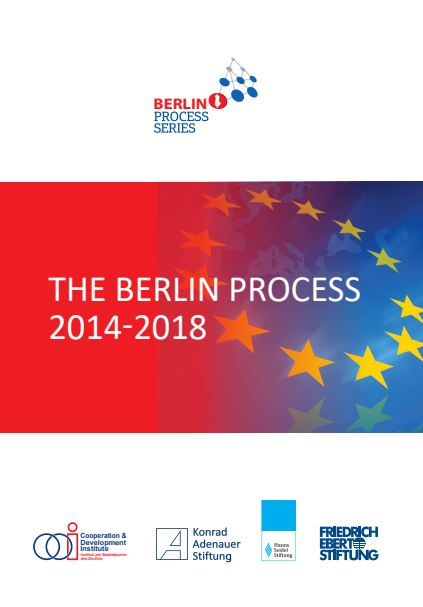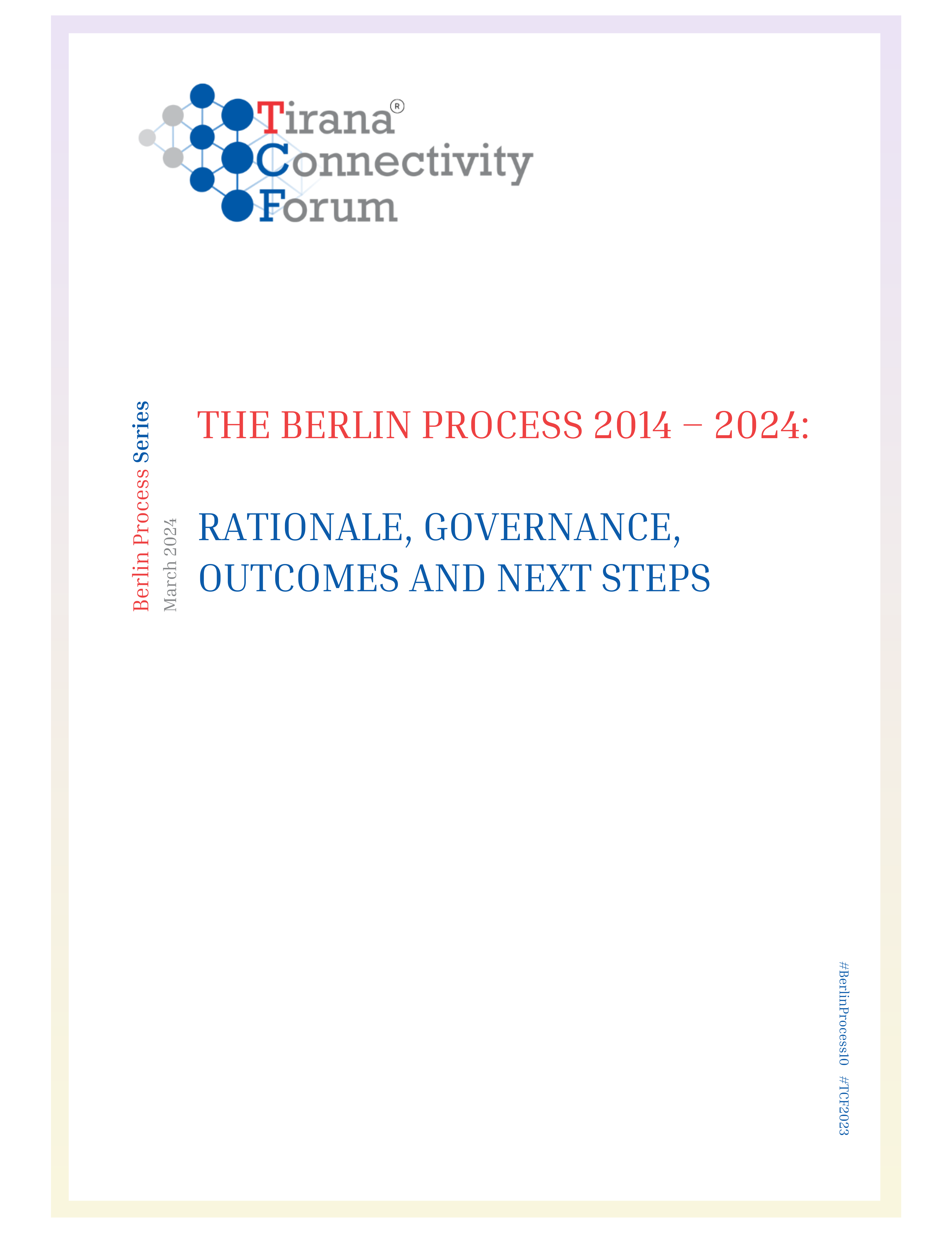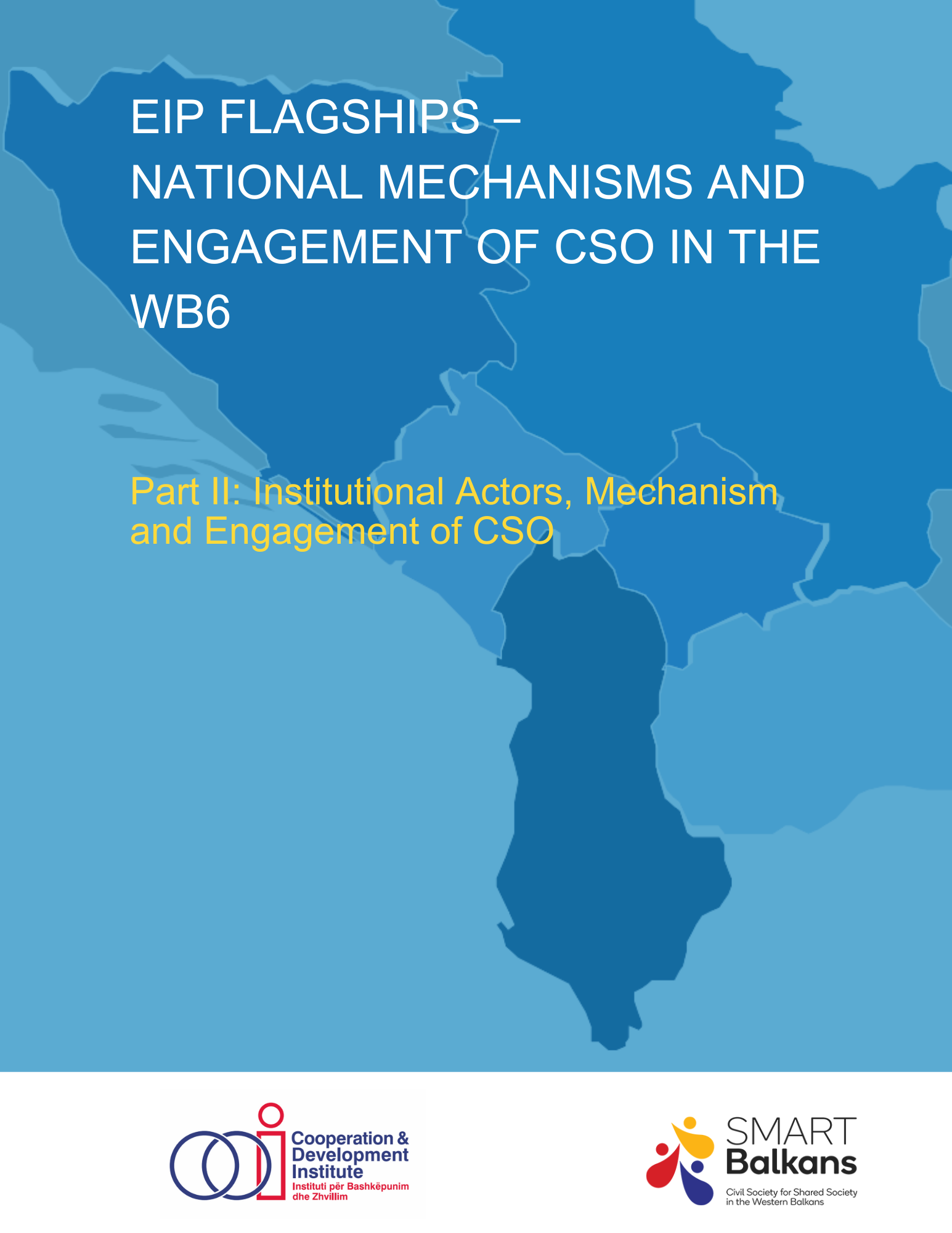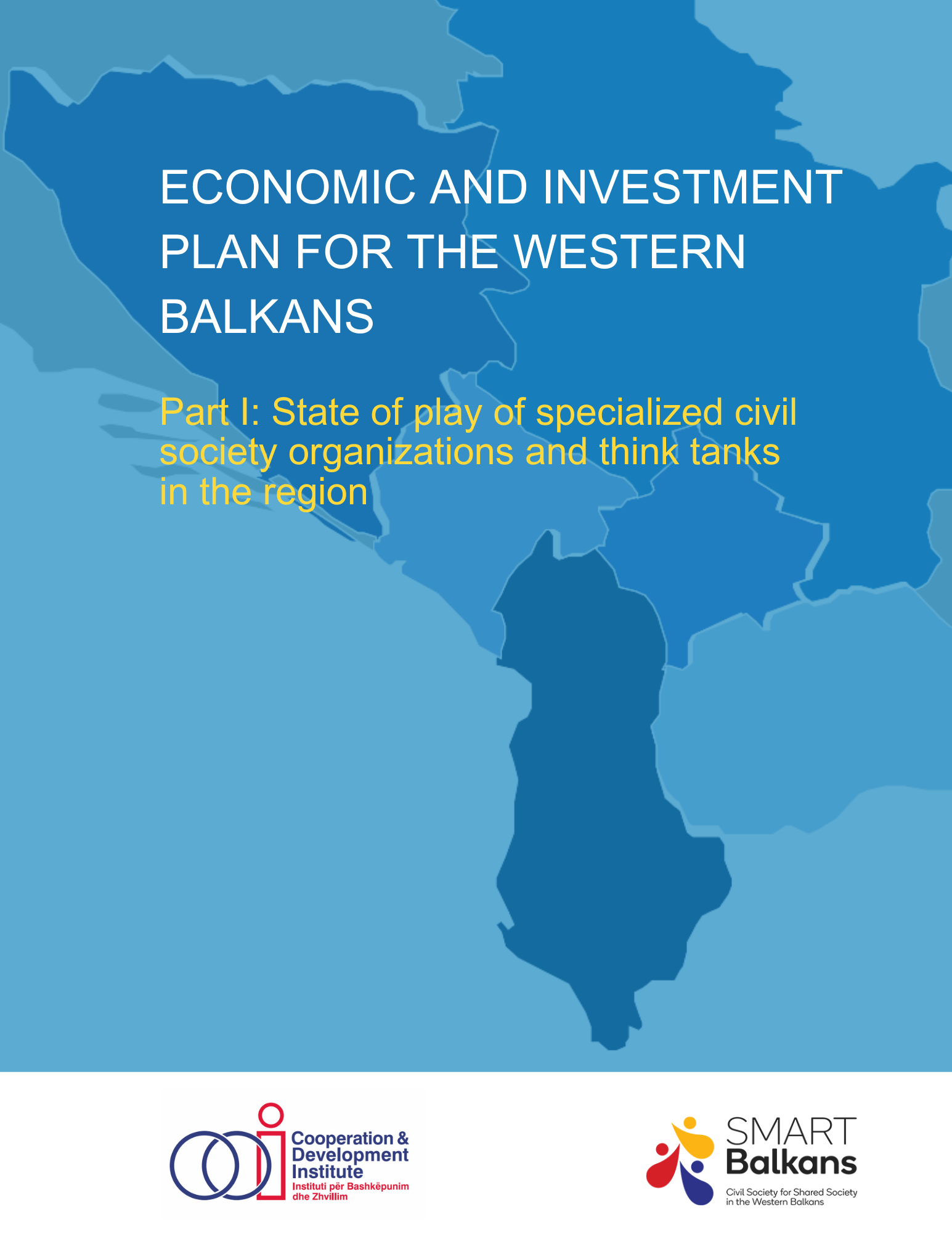
Democracy in Progress: Shadow Report on Political Copenhagen Criteria in Western Balkans EU Candidate States
December 23, 2017
Trilateral Training “Ideas and Actions for Europe: Energy and Environment in the 21st Century” kicks off in Dijon
February 26, 2018This publication was supported by: Konrad Adenauer Foundation (Tirana Office), Hanns Seidel Foundation (Tirana Office) and Friedrich Ebert Foundation, (Tirana Office).
The main objectives of the publication “The Berlin Process 2014-2018” are twofold: to continue to build the body of knowledge on this initiative, to analyze its features and actions implemented under “its roof”, and: to provide additional data on its interaction with Enlargement, and on its contribution to regional cooperation in WB6. The state of advancement of the connectivity infrastructure projects will be analyzed as well.
The report contains:
• an assessment of the scope of the Berlin Process as reflected in the Final Declarations of the Chair in Western Balkans Summits in Berlin, Vienna, Paris, Trieste, and information about the upcoming London event;
• evaluation of interrelation of the Berlin Process permanent areas (connectivity and regional cooperation), with Enlargement process as expressed in the Enlargement strategies 2013- 2018 and in the EU funding through IPA Multilateral and IPA National;
• up-to-date information on the Connectivity Agenda, including state-of-affairs of connectivity projects NSPP of the Western Balkans 6, and progress made on the Economic Reform Programs and Regional Economic Area;
• WB6 regional cooperation achievements including people-to-people (P2P) connectivity, high level political cooperation, government-to-government (G2G), youth exchange (RYCO), Civil Society Forums, and Science Cooperation;
• debates spurred by Berlin process such as on the WB6 growth model, regionalization of enlargement, politisation of Enlargement, relations with Eastern connectivity, etc.




